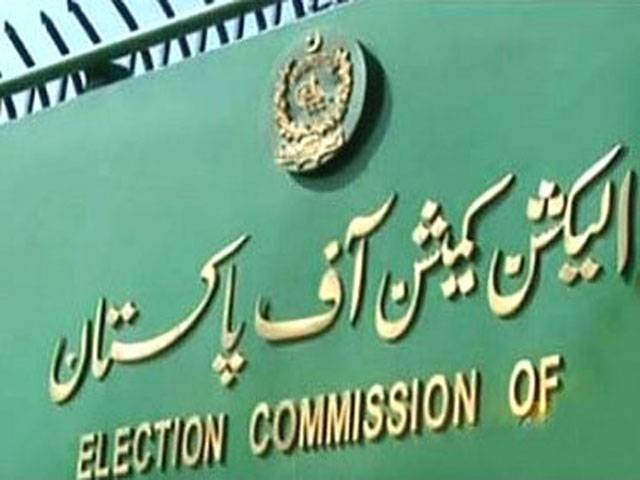ISLAMABAD - Election Commission of Pakistan and National Database and Registration Authority have difference of opinion over the introduction of biometric voter verification system or electronic voting machines system in the next elections, local bodies and general, as the ECP is preferring the electronic voting machines to NADRA's biometric verification during polling, The Nation has learnt.
While NADRA wants that ECP should adopt its 'Biometric Voter Verification System' for the next polls, the ECP is not satisfied with the NADRA' system saying that the system would not be viable on technical reasons and electronic voting machine system would be more efficient and less costly than NADRA's system, well-placed sources in NADRA and ECP Monday informed The Nation.
On one hand, a senior official in NADRA said that the authority had demonstrated capability of 'Biometric Voter Verification System' during mock poll conducted, during last months, at Peshawar and Islamabad in six polling stations with actual voters. He said the system had been designed for each polling booth along with respective electronic voter list. Each voter would verify through his/her CNIC or NICOP with corresponding voter list and then biometric authentication would be performed using fingerprint matching with CNIC database.
NADRA claims that ECP and PTI-led provincial government of Khyber Pakhtunkhwa have observed both mock poll exercises and have technically accepted the solution.
While on the other hand, well-placed sources in ECP claim that the commission is not happy with the mock exercises conducted by NADRA as chip-based biometric verification machines did not work well during the exercise and their efficiency was found between 20 to 30 per cent.
A senior officer in ECP said that NADRA's vote verification machines did not work up to 70 per cent during the mock exercises. He claimed that NADRA had no record of 1.2 million voter's thumb impressions in KP out of around total 15 million voters. "If these machines were to be installed at all polling booths in KP, how, 1.2 million voters would be verified," he questioned. He said one solution under the consideration of ECP was that those voters whose thumb impressions found absent in NADRA record would be allowed to caste votes after the permission of presiding officers through special powers given to them by the commission. "However, this would open doors for polls rigging," he added. "How can we ECP deprive voter from casting his and this will start new conflicts," he questioned.
The official sources in ECP informed that NADRA was showing its reluctance to purchase biometric vote verification machines and was asking the commission to purchase these at its own. According to ECP, each machine would cost Rs 30,000 and it would cost Rs 1.5 billion only in KP. "ECP fears that if it purchased the machines at its own and in case these did not work well, NADRA will say that these were not compatible with its data," a source privy to the development informed adding for this reasons, ECP and PTI-led KP government were asking NADRA to purchase those. According to ECP, it would take at least six months to give international tenders for the purchase of biometric verification machines. Furthermore, 50,0000 operators as well as trouble shooters are needed to operate these machines in only KP which has 50,000 polling booths. Similarly, 150,000 polling booths are established all over the country in polls, be it general or local bodies.
The ECP official said that each biometric verification machine was chip based having data of specific polling station and was not attached with NADRA's main database and this would arise problems in verification system. One solution is that all machines should be connected with NADRA's main database, he said. "But the problem is that there would be risk of hacking of NADRA's system as we are not technologically so advance to save our data," he added.
The official claimed that electronic voting machines system is more viable than biometric verifications system as each electronic machine would cost Rs 40,000 and it would provide three services-recognition through biometric, processing and issuance of electronic ballot paper- instead of biometric that was providing only one service.
Faik Ali, a spokesman of NADRA refused to comment on the issue, saying the ECP was the competent authority to brief on the matter while a senior officer of ECP refused to comment on the issue publicly.
Currently, there is no provision of 'Biometric Voter Verification or Electronic Voting Machines' in Electoral Laws (Representation of Peoples Act - 1976) for conducting elections of National or Provincial assemblies.
As per article 219 of constitution of Pakistan, conducting elections in the country is the responsibility of Election Commission of Pakistan. To fulfil this mandate, ECP has to make administrative arrangements for inducting biometric voter verification in conducting elections. Main task include finalisation of requirements, procurement, transportation, training of election staff and post-election handling of biometric devices. NADRA can provide technical assistance to ECP in carrying out these administrative tasks while constitutional responsibility of conducting elections will remain with ECP.
Friday, April 19, 2024
ECP prefers EVMs to Nadra's biometric verification system

Caption: ECP prefers EVMs to Nadra\'s biometric verification system
Faizabad commission report leaked, it should be made public now, suggests Abbasi
11:11 AM | April 19, 2024
MPCL makes new gas discovery in Sindh’s Marighazj formation
April 19, 2024
A Tense Neighbourhood
April 19, 2024
Dubai Underwater
April 19, 2024
X Debate Continues
April 19, 2024
Hepatitis Challenge
April 18, 2024
IMF Predictions
April 18, 2024
Kite tragedy
April 19, 2024
Discipline dilemma
April 19, 2024
Urgent plea
April 19, 2024
Justice denied
April 18, 2024
AI dilemmas unveiled
April 18, 2024
ePaper - Nawaiwaqt
Advertisement
Nawaiwaqt Group | Copyright © 2024





